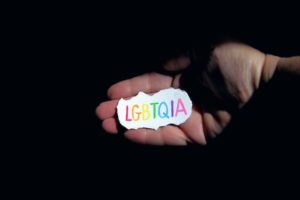An Education about Asexuality

I saw ACE: What Asexuality Reveals About Desire, Society and the Meaning of Sex by Angela Chen mentioned on the list serve for the Association for the Treatment of Sexual Abusers (ATSA). As a clinician who works with clients with some type of problematic sexual behavior, I was keen to read this book to get a better education about asexuality.
This post contains affiliate links. The author or blog owner may earn a commission if you make a purchase using these links.
In years of doing this work, I had not seen any work specifically about asexuality.
In all honesty, I had been exposed to very little relating to asexuality.
If I dig back into the recesses of my brain for work in college and graduate school, I cannot recall the topic being brought up. In CSAT training, there was talk of sexual anorexia, but nothing about asexuality.
My own preconceptions
First, I need to admit that I am guilty of saying that sexuality is a part of being a human being and everyone has a sense of sexuality.
In our work with problematic sexual behavior and sexual offending, don’t I say that our work is to find out what their sense of healthy sexuality is?
Yes, I do.
And I haven’t given too much thought to whether or not my clients are asexual.
They do not really bring it up, but neither do I.
I need to acknowledge: this book made me take a very hard look at my own assumptions about sexuality. And the work I do.
As a sex positive therapist, I am incredibly open about all types of sexuality. I have never not believed in asexuality; I just never gave it too much thought. If it did nothing else, this book made me a better therapist for making me investigate my own assumptions.

Struggling with excessive sexual thoughts, urges, or activities that are causing you distress? Take the free, online Sexual Symptom Assessment Scale (SSAS) and get a link to share with your therapist.
My thoughts after my education about asexuality
This book is also a great way to introduce a person to the preferred language around sexuality that includes asexuality. Again, owning my ignorance, I had not heard the term allosexual.
Someone who is allosexual experiences sexual attraction to another person. This contrasts with someone who identifies as asexual, meaning they have a persistent lack of sexual attraction to any gender.
This book also introduced me to the term demisexuality.
A person may identify as demisexual if they do not experience sexual attraction to another person unless they have formed a strong emotional bond with them. My clients had spoken of this before, but I (we) never named it.

Challenging Assumptions
This book also makes the reader take a hard look at their assumptions.
Many people might assume that if a person is asexual, that they do not then feel romantic love and are never in relationships. This dive into asexuality provides us with the reality.
Many people who identify as asexual find romantic love, have great relationships and can even be kinky! The nuances of these relationships are many and require honesty and communication between the parties.
But don’t all relationships require this anyway?
Are you a Licensed Professional Counselor in need of continuing education? Learn more about Sex Addiction, Erotic Conflict, and Moral Incongruence from Dr. Weeks and Sexual Addiction Treatment Services, an NBCC ACEP™ approved provider!
Sexual Addiction Treatment Services has been approved by NBCC as an Approved Continuing Education Provider, ACEP No. 7250. Programs that do not qualify for NBCC credit are clearly identified. Sexual Addiction Treatment Services is solely responsible for all aspects of the programs.

The Recommendation
The only downside to this book for me is that, at times, it feels a bit preachy. However, if I look at how our culture ignores, talks about or judges asexuality, I can understand how the author could end up writing in this tone for some of the book. When you are part of a community that has been basically invisible, you want to be heard and heard authentically.
I highly recommend this book to anyone who works in therapy or sexual education.
Particularly, this book is important for those of us who work with clients with sexual issues of any kind.
It can help us be better at our work and meet our clients where they are without judgement.
This post contains affiliate links. The author or blog owner may earn a commission if you make a purchase using these links.

Are you a professional looking to stay up-to-date with the latest information on, sex addiction, trauma, and mental health news and research? Or maybe you’re looking for continuing education courses? Then you should stay up-to-date with all of Dr. Jen’s work through her practice’s newsletter!

Need support and not local to the Lehigh Valley? Check out the LGBT National Help Center.

If you are part of the LGBTQIA+ community, local to the Lehigh Valley in Pennsylvania, and need support a great place to start is the Bradbury-Sullivan LGBT Community Center.
